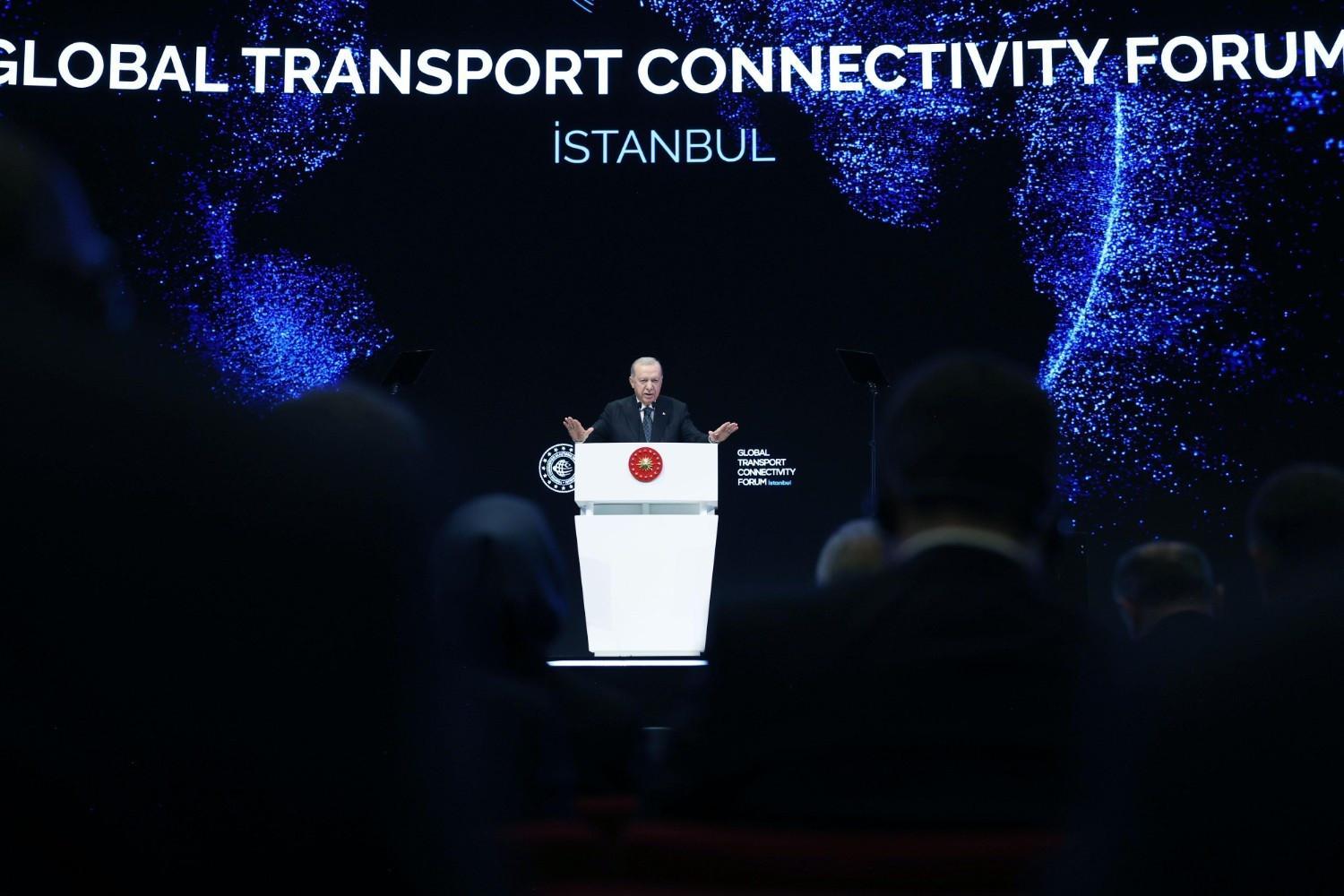
President Recep Tayyip Erdoğan has underscored the growing importance of alternative transportation corridors amid mounting tensions in the Strait of Hormuz, praising two major projects as pivotal to regional trade and security.
"The Middle Corridor’s potential for trade volume via rail is at $75 billion... With the Development Road, we will transform our geopolitical opportunities into a comprehensive economic advantage that will benefit our entire region," Erdoğan said on June 27 at an event in Istanbul.
The Middle Corridor, also known as the Trans-Caspian East-West-Middle Corridor Initiative, is a transport route that connects China to Europe via Central Asia, the Caspian Sea, the Caucasus and Türkiye. It is viewed as a key alternative to routes passing through Russia or the Suez Canal.
The Development Road, meanwhile, aims to connect Iraq’s Al-Faw port to Türkiye and onward to European markets through an integrated rail and road network. Turkish officials have touted the project as a new commercial artery between the Gulf and the West.
"When we implement the projects for the Middle Corridor, we anticipate a production impact of $114 billion and employment of an average of 144,000 people," he said.
"The impact of the Development Road on production with a 10-year projection is estimated to exceed $50 billion, and its impact on employment is estimated to be an average of 63,000 people."
His remarks came amid heightened concerns that Iran could move to shut down the Strait of Hormuz, which handles nearly 20 percent of the world’s daily oil supply.
Iran’s parliament last week passed a resolution to close the waterway following U.S. airstrikes on nuclear sites, with the final decision pending approval by the country’s Supreme National Security Council.
Erdoğan said the situation highlights how transportation infrastructure is now a matter of global strategic importance.
"As in history, countries that improve their transportation facilities today not only contribute to the welfare of their societies, but also advance their cultural and scientific development," he said.
"This approach is the most fundamental motivation behind Türkiye's major investments in land, air and sea routes, as well as communication and energy lines."
Under his administration, he said, the length of divided roads in Türkiye has increased to nearly 30,000 kilometers, the number of provinces connected by such roads has risen to 77 and the highway network now stretches nearly 3,800 kilometers.
"Türkiye provides direct access to 67 countries and 1.5 billion people within a four-hour flight," Erdoğan told attendees. "You are located at the very center of a geography with a total gross domestic product exceeding $51 trillion."